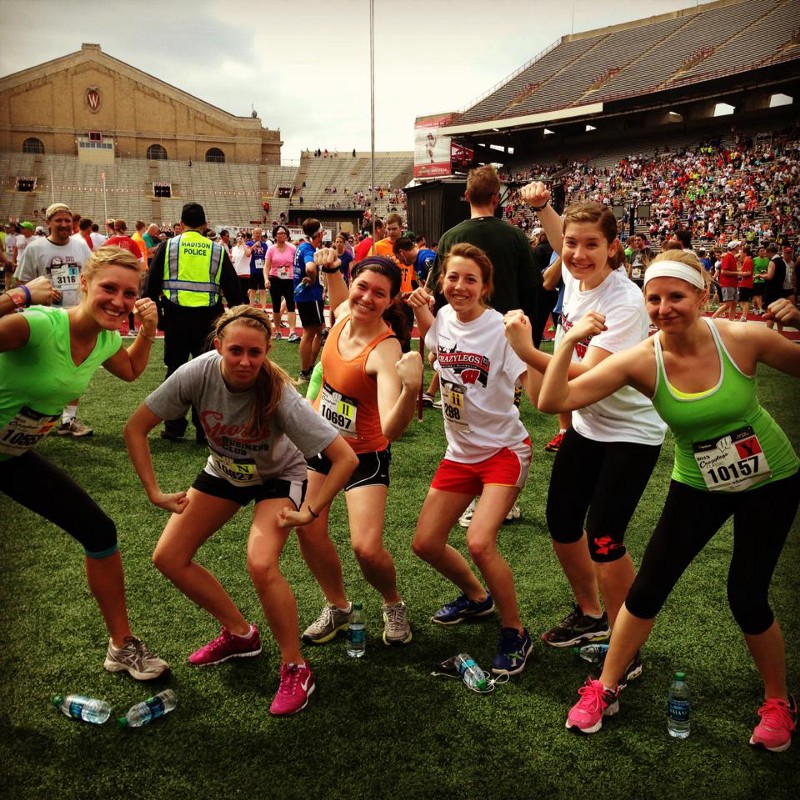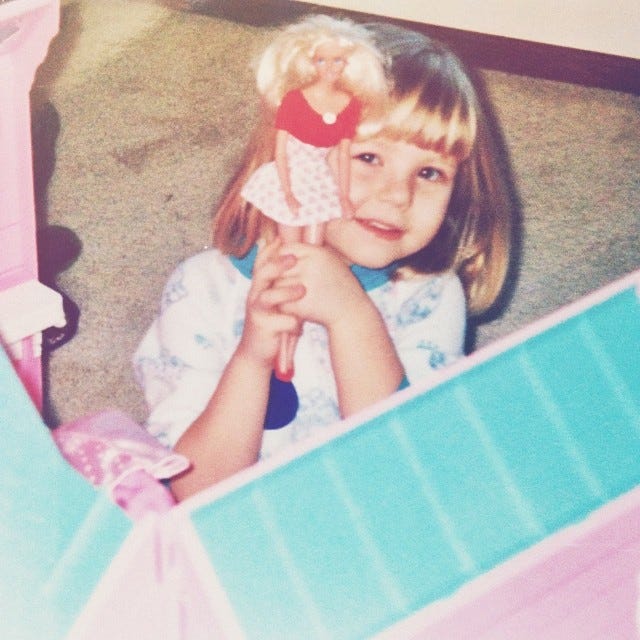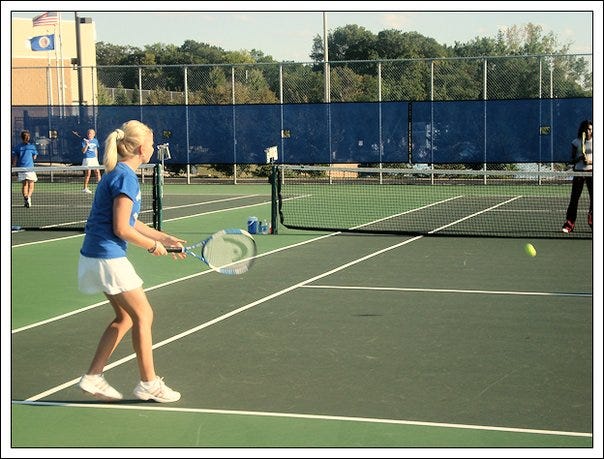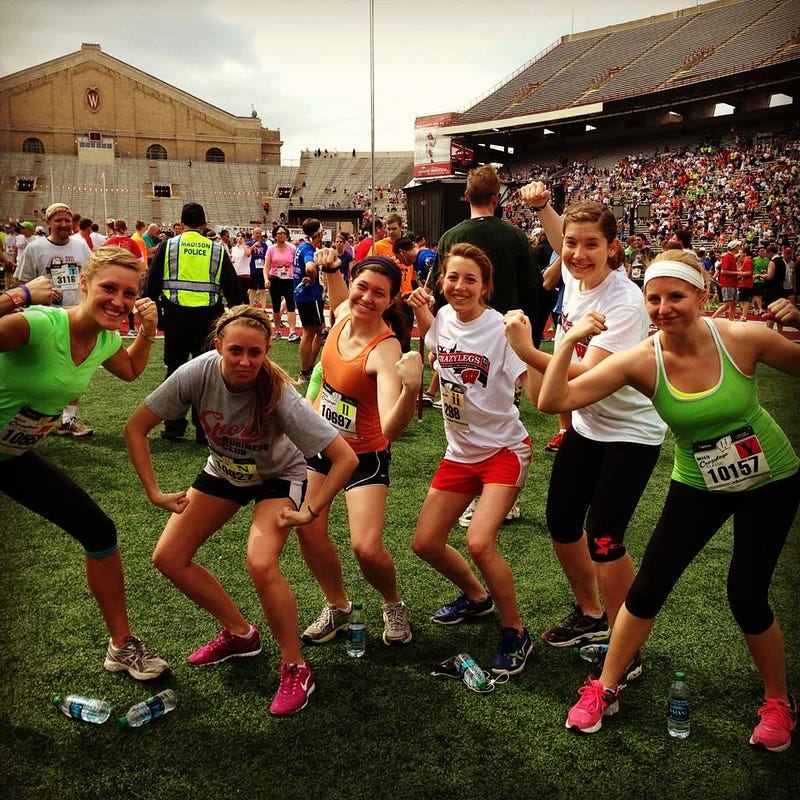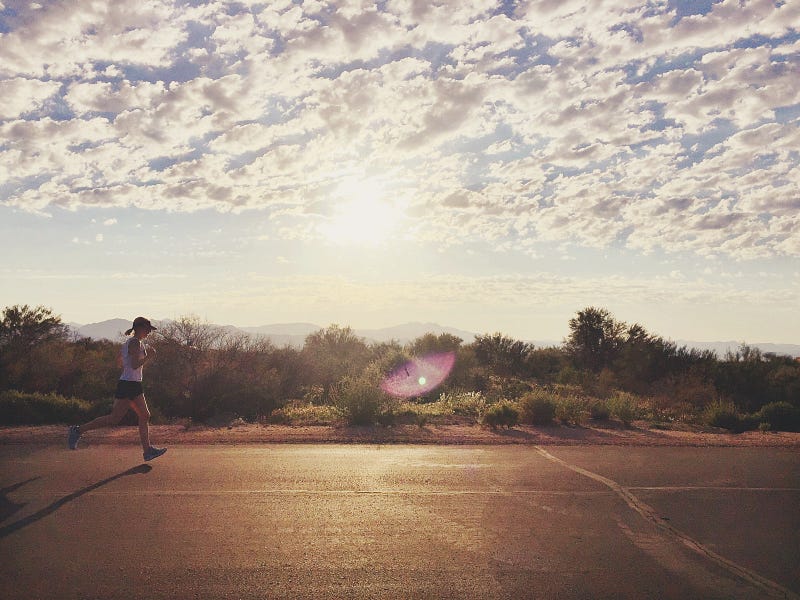L9P Community and Ambassador Post: Hannah Meier
When I first heard of the Lane 9 Project community through Heather—whom I met when searching for a running coach to help me train for my first marathon—it felt like I found my people. For years I have yearned for a platform to share what I’ve learned about myself and my history with disordered eating, body hate and overall self destruction that was largely ignored by everyone around me, including myself.
As a dietitian, I know many of my peers have struggled with the normalized disordered eating behaviors that our profession still sometimes encourages (with the best of intentions, usually). Our culture loves to distinguish good food from bad food, set up limits and boundaries, and reap guilt and shame for stepping outside of the lines. We praise the skinny girls and the muscular guys, and though I’ve noticed (perhaps by wrapping myself in more of a body-positive bubble lately) that many more of us are rejecting this ideal, I know we still have SO much work to do.
I considered publishing anonymously, but then questioned what that would say about empowerment.
I share my story alongside many other strong women who have overcome the societal pressures that fed their inner demons. This vulnerability is admittedly one of the scariest cliff edges to face. I considered publishing anonymously, but then questioned what that would say about empowerment. I am bigger, stronger and more powerful than the disordered eating that enveloped my past and I want to move forward, taking the high road with my head up and wings out. Together we can be loud enough to reject the chorus of diet culture. Even the dietitians among us.
My eating disorder began when I was 10 years old.
Even if I didn’t understand it at the time, the way I viewed my body and related to food shifted dramatically one summer afternoon when my favorite aunt casually commented on the size of my belly. I felt shell-shocked, suddenly stricken with the certainty that I needed to change myself to be worthy of praise. I was aware of my body, but before that moment I did not know others were making judgements about it. I sat down in the living room with my family later that evening and rejected the shared bowl of buttery popcorn in favor of an orange. I was determined to prove that I would not be defeated.
I went through middle school graciously armed with positive friendships and a household that supported a healthy relationship with food. No foods were off-limits in our house; I was free to eat pretty much whatever I wanted. This ended up including lots of pop tarts, bagels, and soda, plus a home-cooked dinner almost every night. It was a world filled with balance that I’m now so grateful to have had.
We learned about eating disorders in school.
We looked at images of skeletal women in hospital gowns. I was horrified that people could starve themselves to look so close to death. At the same time, we learned about calories and the food groups and that obesity was a national problem. I felt larger than most of my friends and, armed with new knowledge about calories in versus calories out, started experimenting with restriction. It didn’t last long, but I deemed the school day “successful” if I made it through on a few snacks and pieces of fruit (which I rarely did, and therefore constantly felt like a failure to myself and my made-up rules). Of course, when I would come home from school feeling famished, I would dive into a bag of snacks and eat and eat until my stomach ached.
For the next few years, I would cycle between restricting food, counting calories, and then forgetting all of my rules in favor of having fun with my friends whom, from what I could tell, were not thinking about food in the same way I was. Then suddenly, in the cruel way that high school works, I found myself without friends. It crushed me. I went from feeling happy, adventurous and secure, to completely insecure, afraid and isolated. In a world where friendships were everything, I felt like I had nothing. In that chaos of uncertainty and isolation I returned to the soothing comfort of controlling my calorie intake. I had a project: consume as little food as possible.
I can’t fully remember what my mindset was during the worst of it.
I was half-functioning. I remember filling pages of journals with promises to myself that I wouldn’t eat. I planned out my week of arbitrary calorie restrictions that were shockingly low and wrote them all over my planner, my whiteboard, the foggy mirror in the bathroom. I came up with ideas for things to do instead of eating when I felt hungry. “Paint your nails,” “Play the Sims,” “Make art,” “Go on a walk,” were all common distractions. I would tally off hours I successfully made it through a fast and then write hateful things about my willpower when I inevitably broke it. I was obsessed with the scale. I became obsessed with my body, and checking it. Pinching my stomach, pinching my arms, making sure my hip bones poked out when I laid down.
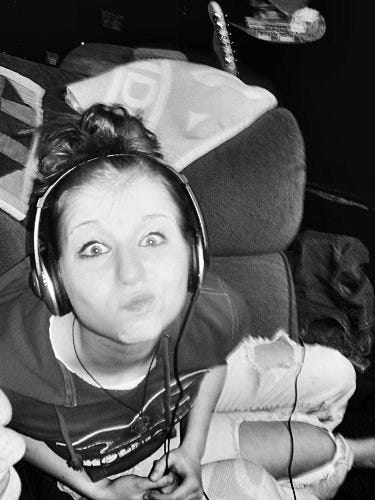
I lost my period.
This all sounds dramatic and scary writing it now, recalling how I actually rationalized my behavior. But I honestly don’t think anyone figured out I had a problem. I masqueraded my obsession with food as an interest in nutrition a desire for health. I became known as the “healthy” one. But when no one was home, control escaped me like steam from a boiling pot. I would raid the fridge and eat whatever I could find. My deprived and exhausted body numbly ate whatever odd variety of foods I could find in the kitchen.
I wouldn’t admit I had a problem.
Despite my all-consuming my quest to do so, I never lost a signifiant amount of weight. Therefore, in my mind, I didn’t have an eating disorder.
I was not athletic, but I went to the gym alone and obsessed over calories burned. Later, playing junior varsity tennis would ultimately reel me back to a semblance of a social life and show me that exercise could actually be good for the soul. But with tennis my energy deficit grew even deeper. I finally started losing weight, and this pleased my eating disorder. I received compliments about my appearance and intensely feared gaining any weight back. I was far from healed, and my missing period was still a mystery, even to my doctors, who never suspected low energy intake. If I wasn’t deathly “skinny,” I thought, I couldn’t actually have an issue.
The face of an eating disorder doesn’t look like the skeletal frame I was shown in middle school.
IfI could scream anything to the world, it is this: The face of an eating disorder doesn’t look like the skeletal frame I was shown in middle school. It looks like a hollow smile and a distracted gaze. It looks like a baggy sweatshirt, or crossed arms fearful of exposing an unacceptable, not-flat stomach. It looks like being the only one at a birthday party to turn down a cupcake in the name of healthfulness. It looks like going to a gas station convenience store for breakfast on a road trip instead of McDonalds with the rest of your family, because even watching others eat greasy food is enough to make you feel sick. An eating disorder looks pretty damn normal today, which is why I am determined to fight back.
An eating disorder looks pretty damn normal today, which is why I am determined to fight back.
I still regret that I never sought treatment.
Despite how clearly I can identify the timeline of my eating disorder, it’s almost impossible for me to point to the day I started recovering. I still regret that I never sought treatment. Eventually, my fascination with nutrition labels and calorie counting transitioned more into a fascination with food itself, and later into something that would probably be diagnosed as orthorexia.
When I became a vegetarian, I explained it away with “health reasons,” but it was absolutely a product of my eating disorder. I started reading Vegetarian Times and Eating Well magazines. I became attached to the idea of food as medicine and low calorie recipes. I was a sponge and soaked up information about the hidden “demons” in our foods — trans fats, high fructose corn syrup, preservatives. I harbored a whole lot of fear about food, but did understand that I needed to eat. I stopped fasting and restricting so severely, but would really only allow myself to eat foods that felt safe.
Somehow I decided to pursue nutrition as a career and, even at that early stage, considered going into work in eating disorder treatment to better understand my warped mind. I quickly realized that I was ill prepared to help people recover from their eating disorders (though I didn’t realize it was because I still battled one myself), and instead decided to pursue preventative nutrition to help people learn how to eat more of the good foods and avoid the bad ones to stave off chronic disease. Hello, diet culture. {Insert eye roll here.}
College saved my life.
Getting away from the hole I dug myself into in high school was like walking out of a cave into daylight. My high school best friend, The Eating Disorder, had less and less room in my life among my new friends in college. I became close to people with a refreshingly healthy relationship to food. We ate all the foods, and drank all the drinks, and, I was shocked to realize, nothing bad happened to me. As a psychology and nutrition double-major, I began to question my food rules. I eventually realized the root of my problem was my own lack of respect for and trust in myself.
I began running, mostly because it was convenient and scenic, and it felt horrible at first.
But the more I did it consistently, the more I started feeling this amazing feeling: pride. I could accomplish a run, feel good, and be done with it. There was no need for a post-run binge like I needed with the “accomplishment” of excessive dieting. Running, along with a more sophisticated understanding about what really made food, food (read: carbohydrates are carbon, oxygen and hydrogen—NOT scary fat-forming demons), brought me sanity. College, with its nachos, beer pitchers and cheese curds (this was Wisconsin), brought me flexibility and a little bit of forgiveness. I questioned what health really meant and learned more about the nuances of food within our food system.
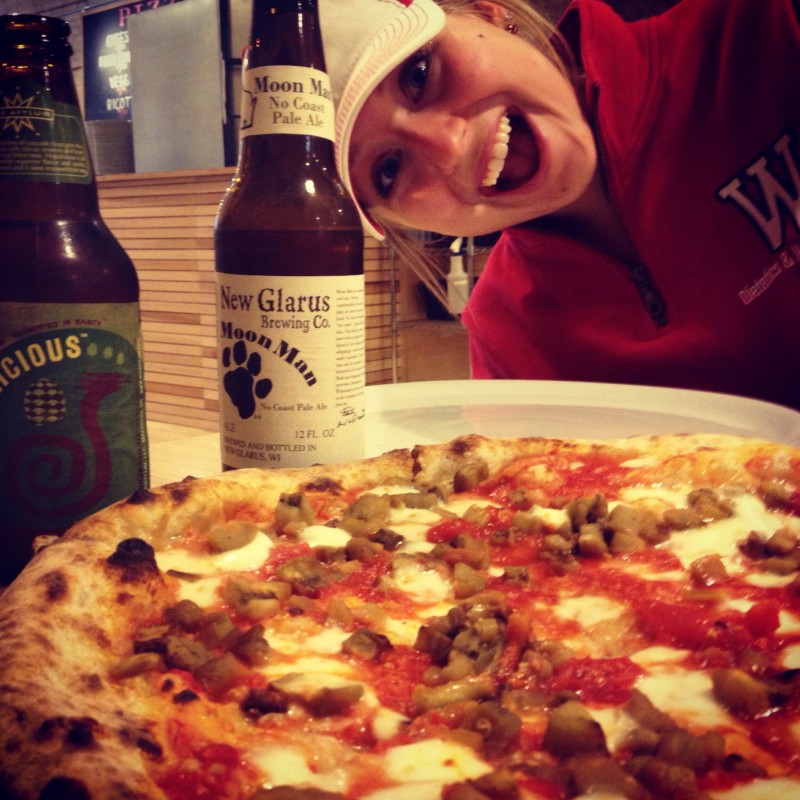
I was involved from very early on in my undergraduate education in our school’s Dietetics and Nutrition Club, which sounds like it could be a breeding ground for food-obsessed orthorexia, but instead was a place of refuge for me. I made significant strides against food rules at each meeting, where we would all share homemade treats alongside carrots and hummus. The brownies were just as loved as the bean dip. My dietetics friends were (and are) some of my closest friends, and we shared love through food.
Running made me feel good about myself but it was not always on my side.
Recovery was, and still is, a long, winding, complicated road for me.
Running made me feel good about myself but it was not always on my side. I struggled to train for longer distances and my weak bones (thanks, amenorrhea) fought against me with every increasing mile. It took way too long for me to figure out that I just needed to properly fuel. I had to learn that running was not the means to an end that I still somehow yearned for. Running is a partnership I have with myself. I am strong because I run, and I run strong because of the food (all of the food) I eat and we are on this journey together.
Even as a dietitian, I’m still strengthening my understanding about what a truly healthy relationship with food looks and feels like. Thanks to years of schooling that immersed me further into diet culture and away from accepting health at any size, these are things many in my profession have to re-learn. Though I very much value and trust my body today, I STILL have to fight off some of those dusty disordered thoughts sometimes.
We need to realize the words we say to young girls matter. We need to be vigilant about the messaging to the women in our country. We need more empowerment and less “not good enough yet.” And we won’t get there unless we genuinely, and transparently, face up to the ramifications of diet culture and talk about it. So here we are, talking.
